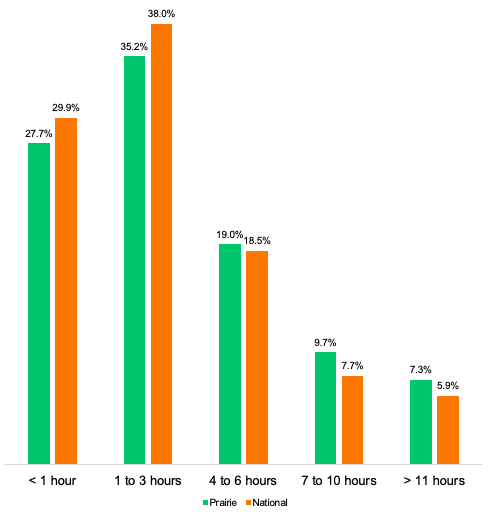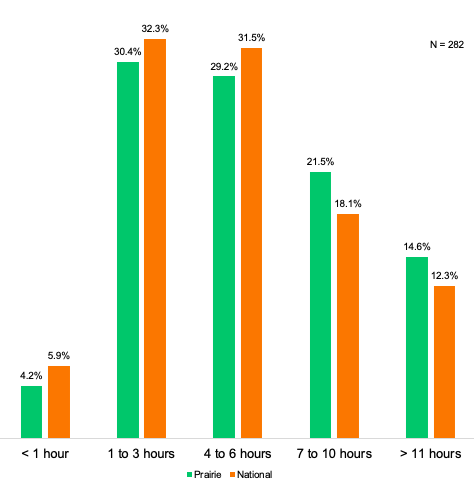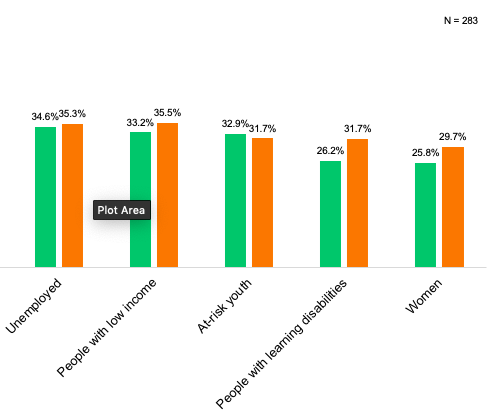The past six months have quite literally rocked the world. Like the clients and students we serve as career development practitioners (CDPs), our worlds have been rocked too. Through conversations with CDPs from Alberta and beyond from mid-March to now, it is abundantly clear that everyone, regardless of sector, organization, job function, salary, level of education or type of service is being affected by COVID-19.
One of the ways the career development profession has been affected is through the difficult and quick decisions that had to be made around professional development events. Some events were postponed, others were offered virtually and some were ultimately cancelled. However, as highlighted in CERIC’s 2019 Survey of Career Service Professionals, CDPs have a strong preference for in-person learning opportunities such as workshops, seminars and conferences. With career professionals already facing an increase in online time with their clients and co-workers, virtual professional development and network opportunities were growing less and less appealing.
This article is part of a series exploring the regional results of CERIC’s 2019 Survey of Career Service Professionals amid our new reality. Read more:
I personally received more than a handful of phone calls begging me to not host Alberta’s annual Career Development Conference virtually. CDPs spoke passionately about how important the in-person connections with their colleagues were to their professional and career development. They told me their calendars were already so full of Zoom meetings, appointments and training sessions that they couldn’t do one more thing online. As important as the professional development was for them, it was simply not within their capacity.
Figure 1: Annual professional development budget provided by employer (Top 3 responses)
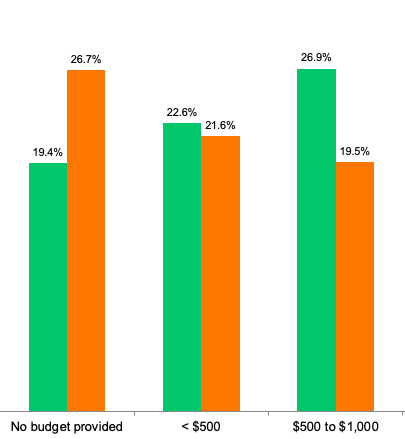
Certainly, there were others who wanted and would have benefited from an online or virtual offering – for instance, those whose schedules or budgets wouldn’t normally permit attendance at an in-person conference. As a profession, balancing the diverse needs of CDPs, their availability for formal and informal learning, and their financial capacity from a budget (organization or personal) perspective has always been a challenge. This challenge was heightened by COVID-19.
Interestingly, a 2009 Pan-Canadian Mapping Study of the Career Development Sector found that “Fewer than 30% [of English respondents] reported frequent participation in formal professional development (workshops, conferences, accredited courses etc.). Slightly more than 60% reported occasional participation in workshops and approximately 40% reported occasional participation in courses. The most common professional development by far is workshops and conferences.” French respondent findings were similar, with the exception that accredited course participation was higher for francophone than anglophone respondents.
At that time, informal opportunities for professional development appeared to be an underutilized source of professional development. Eleven years later, websites, internet searches, videos, and online magazines or newsletters are preferred for informal learning. The majority of respondents to the CERIC survey spend between one and six hours per month on these types of learning activities compared to between one and three hours per month for formal professional development.
Figure 2: Time spent per month: Formal learning opportunities
Figure 3: Time spent per month: Informal learning opportunities
With heavy workloads, inadequate financial resources and insufficient sufficient time to spend with clients/students affecting CDPs’ ability to provide career development, it is possible that their ability to participate in formal professional development, whether in person or online, is also affected. This, in addition to the wide range of client groups CDPs would like professional development offerings to focus on, pose both opportunities and challenges for those who create and deliver professional development.
In connecting with CDPs from across Alberta and beyond, it was interesting to note the differences in personal and professional capacity during the pandemic for activities not related directly to client service, such as professional development. Some found themselves with additional time on their hands because of the nature of their work and dove in to learning activities they had been putting off. Others found themselves with increased work demands and decreased time for learning activities they would normally have engaged in.
Figures 4 and 5: Client group(s) survey respondents would prefer to focus their professional development on
(Top 10 responses)
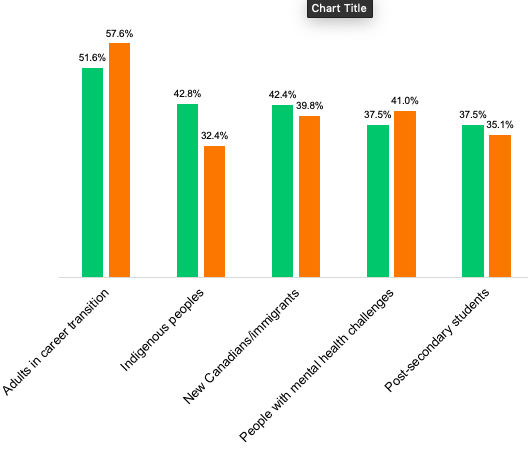
Earlier this year Sareena Hopkins, Executive Director of CCDF, published “Seven Days, Seven Ways: How Career Development Prepared Me for this Pandemic.” No. 4 on her list is “circle of allies.” Professional development is an important and effective way to build and maintain a circle of allies. When CDPs shared their disappointment about cancelled events, or in-person events moving online, it was the loss of personal connection they cited as their primary cause of disappointment. Certainly, as professionals who support clients/students every day with identifying and cultivating their networks, we have the competencies to do this for ourselves. However, a lack of time, resources or energy can make nurturing our circle of allies feel like a monumental task.
As CDPs, we also often sell ourselves short on what we have to offer our colleagues. With more time being spent on informal learning than formal learning, and with the current challenges associated with in person events, perhaps there is an opportunity for each of us to share our unique knowledge, skills and experiences with our peers. Through this, we can expand our networks. Why not connect with your professional association about presenting a webinar or writing an article, or recommending a book or a resource in a social media group? These activities not only increase access to professional development for others but hone and develop our skills and competencies.
In her article, Hopkins also talked about nimbleness and grounded hope. Our nimbleness as professionals, and as a profession, is helping us to weather the current storm. Our commitment to ourselves as professionals, and to our profession, is providing us with the hope we need to continue on despite the challenges and uncertainty we face. Professional development is an important way to stay connected, keep nimble and foster hope.




